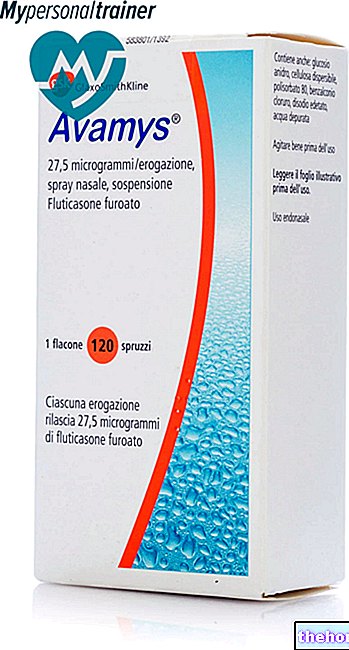Active ingredients: Bicalutamide
PRAXIS 50 mg film-coated tablets
Praxis package inserts are available for pack sizes:- PRAXIS 50 mg film-coated tablets
- PRAXIS 150 mg film-coated tablets
Indications Why is Praxis used? What is it for?
Praxis is part of a group of drugs called antiandrogens. Antiandrogens work against the effects of androgens (male sex hormones).
Praxis is used in adult men to treat advanced prostate cancer. It is taken after surgical removal of the testicles or with another type of hormone treatment known as a luteinizing hormone-releasing hormone (LHRH) analog. These treatments block the unwanted effects of male sex hormones and this slows cell growth. tumors.
Contraindications When Praxis should not be used
Do not take Praxis 50 mg
- If you are allergic to bicalutamide or any of the other ingredients of this medicine (listed in section 6).
- If you are taking antihistamines called terfenadine or astemizole (used to treat rashes and hay fever) or cisapride (used for some types of indigestion) (see section "Other medicines and Praxis 50 mg").
- If it's a woman.
Praxis should not be given to children or adolescents.
Precautions for use What you need to know before taking Praxis
Talk to your doctor or pharmacist before taking Praxis 50 mg
- If you have liver problems, tell your doctor, who will decide whether you should take this medicine. If you take it, your doctor will regularly order blood tests to check your liver function. If your liver is severely compromised from taking bicalutamide, the treatment will be stopped.
- If you have severe kidney problems, tell your doctor who will decide if you should take this drug.
- If you have diabetes. Treatment with bicalutamide in combination with an LHRH analogue can alter the blood sugar level. It is therefore possible that your insulin and / or oral antidiabetic dosage may need to be changed.
- If you go to hospital, tell the medical staff that you are taking bicalutamide.
If any of the above applies to your situation and you have not yet discussed it with your doctor, before taking these tablets, talk to your doctor or pharmacist.
Interactions Which drugs or foods can modify the effect of Praxis
Other medicines and Praxis 50 mg
Tell your doctor or pharmacist if you are taking, have recently taken or might take any other medicines. ? particularly important to remember:
- Antihistamines called terfenadine and astemizole (for hay fever or allergies) (see also "Do not take Praxis 50 mg")
- Cisapride (for some types of indigestion) (see also "Do not take Praxis 50 mg")
- Oral anticoagulants such as warfarin (to prevent blood clots).
- Ciclosporin (used to suppress the immune system to prevent and treat rejection of a transplanted organ or bone marrow). Bicalutamide can increase the plasma concentration of a substance called creatinine. In this case, your doctor may take blood samples to monitor the plasma concentration of this substance.
- Cimetidine (to treat stomach ulcers)
- Midazolam (used as a tranquilizer). If you are going to have an operation or if you feel very anxious in the hospital, tell your doctor or dentist that you are taking bicalutamide.
- Ketoconazole (to treat fungal infections of the skin and nails)
- Calcium channel blockers, such as nifedipine or verapamil (to treat high blood pressure or certain heart diseases).
Praxis 50 mg with food and drink
Praxis 50 mg tablets can be taken with or without food.
Warnings It is important to know that:
Pregnancy, breastfeeding and fertility
If you are pregnant or breastfeeding or think you may be pregnant or are planning to become pregnant, ask your doctor or pharmacist for advice before taking this medicine. Women should not take Praxis 50 mg tablets.
Bicalutamide can cause a period of low fertility or infertility in men.
Driving and using machines
? This drug is unlikely to affect your ability to drive a vehicle or use machines. However, some people may occasionally feel dizzy or sleepy when taking bicalutamide. If you feel dizzy or sleepy, you should use particular caution when carrying out these activities.
Praxis 50 mg contains lactose
If your doctor has told you that you have an "intolerance to some sugars, contact your doctor before taking this medicine.
Dose, Method and Time of Administration How to use Praxis: Posology
Always take this medicine exactly as your doctor or pharmacist has told you.
If you are unsure, consult your doctor or pharmacist.
Unless otherwise advised by your doctor, the usual dose is one tablet per day.
? It is important that you take your medicine at the same time every day, usually in the morning or evening.
The tablet should be swallowed whole with a glass of water.
You should start taking these tablets at least 3 days before starting treatment with LHRH analogues e.g. gonadorelin or at the same time as surgical castration.
Use in children and adolescents
Children and adolescents under 18 years of age should not take Praxis 50 mg.
Overdose What to do if you have taken too much Praxis
If you take more Praxis 50 mg than you should
If you take too many tablets or a child accidentally swallows one or more tablets, contact your doctor or the nearest emergency department immediately. Take this leaflet or some tablets with you so that the doctor knows which medicine you have taken.
If you forget to take Praxis 50 mg
If you forget to take your Praxis 50mg tablet, skip the missed dose and take the next tablet at the usual time. Do not take a double dose to make up for a forgotten tablet.
If you stop taking Praxis 50 mg
Do not stop taking the tablets, even if you feel well, unless your doctor tells you to.
If you have any further questions on the use of this medicine, ask your doctor or pharmacist.
Side Effects What are the side effects of Praxis
Like all medicines, this medicine can cause side effects, although not everybody gets them.
If you have any of the following side effects, stop taking Praxis 50 mg and seek medical help immediately:
- Severe dyspnoea (difficulty in breathing) or sudden worsening of shortness of breath, possibly with cough or fever. You may have an "inflammation of the lungs called interstitial pneumonia.
- Intense itching of the skin (with lumps), swelling of the face, lips, mouth or throat which may cause difficulty in swallowing or breathing. You may have a severe allergic reaction to Praxis 50 mg.
All of these are serious side effects and are not common (affecting up to 1 in 100 people).
- blood in the urine (haematuria)
- abdominal pain
These side effects are very common (affect more than 1 in 10 people)
- yellowing of the skin and eyes (jaundice). These may be signs of liver problems or, in rare cases (less than 1 in 1000 people) of liver failure.
This side effect is common (affects up to 1 in 10 people) The following side effects may also occur:
Very common (affects more than 1 in 10 people):
- breast swelling and tenderness
- hot flashes
- dizziness
- constipation
- malaise (nausea)
- weakness
- swelling of the hands, feet, arms or legs (edema)
- low number of red blood cells (anemia)
Common (affects up to 1 in 10 people):
- decreased sexual desire
- depression
- drowsiness
- acid indigestion
- flatulence
- liver toxicity, elevated liver enzyme levels, yellowing of the skin and eyes (jaundice)
- hair loss or regrowth
- hirsutism
- dry skin
- rash
- itch
- heart attack, impaired heart function
- difficulty getting an "erection (impotence)
- weight gain
- lack of appetite
- chest pain
Rare (affects up to 1 in 1,000 people)
- liver failure (with the possibility of fatal outcome)
Reporting of side effects
If you get any side effects, talk to your doctor or pharmacist. This includes any possible side effects not listed in this leaflet. You can also report side effects directly via the national reporting system at https://www.aifa.gov.it/content/segnalazioni-reazioni-avverse. By reporting side effects you can help provide more information on safety. of this medicine
Expiry and Retention
Keep this medicine out of the sight and reach of children.
This medicinal product does not require any special storage conditions.
Do not use this medicine after the expiry date stated on the blister and carton. The expiry date refers to the last day of the month.
Do not throw any medicines via wastewater or household waste. Ask your pharmacist how to throw away medicines you no longer use. This will help protect the environment.
Composition and pharmaceutical form
What Praxis 50 mg contains
The active ingredient is bicalutamide. Each film-coated tablet contains 50 mg of bicalutamide.
The other ingredients are:
- Tablet core: lactose monohydrate, sodium amidoglycolate type A, povidone, crospovidone type B, magnesium stearate
- Film coating: hypromellose, Macrogol 300, titanium dioxide (E-171).
What Praxis 50 mg tablets look like and contents of the pack
Praxis 50 mg is a white, round, biconvex, film-coated tablet. The tablets are packaged in blisters in a cardboard box containing 28, 30 or 90 tablets.
Source Package Leaflet: AIFA (Italian Medicines Agency). Content published in January 2016. The information present may not be up-to-date.
To have access to the most up-to-date version, it is advisable to access the AIFA (Italian Medicines Agency) website. Disclaimer and useful information.
01.0 NAME OF THE MEDICINAL PRODUCT
PRAXIS 50 MG TABLETS COATED WITH FILM
02.0 QUALITATIVE AND QUANTITATIVE COMPOSITION
Each tablet contains 50 mg of bicalutamide.
Excipients with known effect:
Each tablet contains 56 mg of lactose monohydrate.
For the full list of excipients see section 6.1.
03.0 PHARMACEUTICAL FORM
Film-coated tablet.
White, round and biconvex film-coated tablet.
04.0 CLINICAL INFORMATION
04.1 Therapeutic indications
Treatment of advanced prostate cancer in combination with luteinising hormone-releasing hormone (LHRH) analog therapy or with surgical castration.
04.2 Posology and method of administration
Male adults including the elderly: one tablet once a day at the same time (usually in the morning or evening) with or without food.
Treatment with bicalutamide should be started at least 3 days before the administration of an LHRH analogue or at the same time as surgical castration.
Children and adolescents: There is no relevant indication for the use of bicalutamide in children and adolescents.
Kidney failure: No dose adjustment is required in patients with renal insufficiency. There is no experience with the use of bicalutamide in patients with severe renal insufficiency (creatinine clearance
Hepatic insufficiency: No dose adjustment is required in patients with mild hepatic impairment.
An increase in accumulation may occur in patients with moderate to severe hepatic impairment (see section 4.4).
04.3 Contraindications
Hypersensitivity to the active substance or to any of the excipients listed in section 6.1.
Bicalutamide is contraindicated in women and children (see section 4.6).
Concomitant administration of terfenadine, astemizole or cisapride with bicalutamide is contraindicated (see section 4.5).
04.4 Special warnings and appropriate precautions for use
Treatment initiation must take place under the direct supervision of a specialist.
Bicalutamide is extensively metabolised in the liver. The data indicate that its elimination may be slowed in subjects with severe hepatic insufficiency and this could lead to an increase in the accumulation of bicalutamide.. Therefore bicalutamide should be used with caution in patients with moderate to severe hepatic impairment.
Periodic monitoring of liver function should be considered due to the possibility of hepatic abnormalities. Most changes are expected to occur within the first 6 months of bicalutamide therapy.
Severe hepatic abnormalities and hepatic failure have been observed rarely with bicalutamide and fatal outcomes have been reported (see section 4.8). Bicalutamide therapy should be discontinued if changes are severe.
Reduced glucose tolerance was observed in male patients receiving LHRH agonists. This can manifest as diabetes or, in patients with pre-existing diabetes, as a loss of glycemic control.
Therefore, in patients receiving bicalutamide in combination with LHRH agonists, care should be taken in monitoring blood glucose.
Since there is no experience with the use of bicalutamide in patients with severe renal insufficiency (creatinine clearance
Bicalutamide has been shown to inhibit cytochrome P450 (CYP 3A4) and as such, caution should be exercised when the medicinal product is administered concomitantly with drugs metabolised primarily by CYP 3A4 (see sections 4.3 and 4.5).
The product contains lactose monohydrate. Patients with rare hereditary problems of galactose intolerance, the lapp-lactase deficiency or glucose-galactose malabsorption should not take this medicine.
04.5 Interactions with other medicinal products and other forms of interaction
There is no evidence of any pharmacodynamic or pharmacokinetic interactions between bicalutamide and LHRH analogues.
Education in vitro demonstrated that R-bicalutamide is an inhibitor of CYP 3A4, with minor inhibitory effects on CYP 2C9, 2C19 and 2D6 activity.
Although clinical studies in which antipyrine was used as a marker of cytochrome P450 (CYP) did not yield any evidence of potential drug interaction with bicalutamide, the mean midazolam exposure (AUC) increased by up to 80% after coadministration of bicalutamide for 28 days. For drugs with a narrow therapeutic index this increase could be relevant.
Therefore, concomitant use of terfenadine, astemizole and cisapride is contraindicated (see section 4.3) and caution should be exercised when co-administering bicalutamide with compounds such as cyclosporine and calcium channel blockers.
For these drugs, a dose reduction may be necessary, especially when there is evidence of an increased drug effect or a side effect of the drug. For cyclosporine it is recommended that plasma concentrations and clinical condition be closely monitored after initiation or cessation of bicalutamide therapy.
Caution should be exercised when bicalutamide is prescribed with other drugs that may inhibit the oxidation of the drug, eg cimetidine and ketoconazole. In theory this could lead to an increase in plasma concentrations of bicalutamide which theoretically could lead to an increase in side effects. .
Education in vitro have shown that bicalutamide can displace the coumarin anticoagulant, warfarin, from the protein binding sites. Therefore, careful monitoring of prothrombin time is recommended if bicalutamide is started in patients already receiving coumarin anticoagulants.
04.6 Pregnancy and lactation
Pregnancy
Bicalutamide is contraindicated in women: therefore it should not be administered to pregnant women or nursing mothers (see section 4.3).
Pregnancy
Bicalutamide is contraindicated in women: therefore it should not be administered to pregnant women or nursing mothers (see section 4.3).
Fertility
A reversible decrease in male fertility was observed in animal studies (see section 5.3). A period of hypofertility or infertility in man must therefore be assumed.
04.7 Effects on ability to drive and use machines
Bicalutamide is unlikely to impair patients' ability to drive or use machines. However, it should be noted that occasionally dizziness or somnolence may occur (see section 4.8). In such a case the patient should use caution.
04.8 Undesirable effects
In this section, undesirable effects are defined as follows: very common (≥1 / 10); common (≥1 / 100,
Table 1: frequency of adverse reactions
a Can be reduced with contextual castration.
b Observed in a pharmaco-epidemiological study with LHRH antagonists and anti-androgens used in the treatment of prostate cancer. The risk appeared to be higher when bicalutamide 50 mg was used in combination with LHRH agonists, but was not detected. no increased risk when bicalutamide 150 mg was used alone for the treatment of prostate cancer.
c Hepatic changes are rarely severe and were frequently transient in nature, as they resolved or improved with continued therapy or after its discontinuation.
d Listed as an adverse drug reaction following review of post-marketing data. The frequency was determined based on the incidence of reported cases of hepatic failure in patients receiving bicalutamide 150 mg in the open-label arm of the EPC clinical trials.
and Listed as an adverse drug reaction following review of post-marketing data. The frequency was determined by the incidence of adverse events of interstitial pneumonia reported in randomized EPC trials over the 150 mg treatment period.
Reporting of suspected adverse reactions
Reporting of suspected adverse reactions occurring after authorization of the medicinal product is important as it allows continuous monitoring of the benefit / risk balance of the medicinal product. Healthcare professionals are asked to report any suspected adverse reactions via the national reporting system. "address https://www.aifa.gov.it/content/segnalazioni-reazioni-avverse.
04.9 Overdose
No cases of overdose have been reported. Since bicalutamide is part of the anilide compounds, there is a theoretical risk of the development of methemoglobinemia. Methemoglobinemia has been observed in animals after an overdose. Consequently, a patient with acute intoxication may be cyanotic.
There is no specific antidote; treatment must be symptomatic. Dialysis may not help, as bicalutamide is highly protein bound and is not recovered unchanged in the urine. General supportive care, including frequent monitoring of vital signs, is indicated.
05.0 PHARMACOLOGICAL PROPERTIES
05.1 Pharmacodynamic properties
Pharmacotherapeutic group: hormone antagonists and related substances, antiandrogens.
ATC code L02 B B03.
Bicalutamide is a non-steroidal antiandrogen, devoid of other endocrine activities. It binds to androgen receptors without activating gene expression and, therefore, inhibits the androgen stimulus. The regression of prostate tumors is determined by this inhibition. Clinically, bicalutamide withdrawal can result in antiandrogen deprivation syndrome in a subgroup of patients .
Bicalutamide is a racemate with its antiandrogenic activity which is almost exclusively in the (R) enantiomer.
05.2 Pharmacokinetic properties
Bicalutamide is well absorbed after oral administration. There is no evidence of clinically relevant effects of food on its bioavailability.
The (S) -enantiomer is rapidly cleared compared to the (R) -enantiomer and the latter has an elimination half-life from plasma of approximately 1 week.
With daily administration of bicalutamide the (R) -enantiomer accumulates in plasma 10 times more than the (S) -enantiomer as a consequence of its long elimination half-life.
Plasma concentrations at steady state of the (R) enantiomer of approximately 9 mcg / ml were observed during the daily administration of 50 mg bicalutamide. steady state the (R) enantiomer, mainly active, represents 99% of the total circulating enantiomers.
The pharmacokinetics of the (R) enantiomer are not affected by age, renal impairment or mild to moderate hepatic impairment. There is evidence that, for subjects with severe hepatic impairment, the (R) enantiomer is eliminated more slowly from plasma.
Bicalutamide has a high protein binding (racemic 96%, enantiomer (R)> 99%) and is extensively metabolised (oxidation and glucuronidation); its metabolites are eliminated by the kidneys and the bile in approximately equal percentages.
In a clinical study, the mean concentration of R-bicalutamide in semen of men receiving 150 mg bicalutamide was 4.9 mcg / ml. The amount of bicalutamide potentially transmitted to a partner during sexual intercourse is low and corresponding to about 0.3 mcg / kg. This amount is less than that required to induce alterations in the offspring of laboratory animals.
05.3 Preclinical safety data
Bicalutamide is a pure and potent antagonist of androgen receptors in experimental animals and humans. The main secondary pharmacological action is the induction of CYP450 dependent mixed function oxidase in the liver. Enzyme induction has not been observed in humans. Target organ changes in animals are clearly related to the primary and secondary pharmacological action of bicalutamide and include: androgen-dependent tissue involution, hyperplasia and neoplasms or tumors of the thyroid, liver and Leydig cells; sexual differentiation disorder of male offspring; reversible impairment of fertility in males. Atrophy of the seminiferous tubules is an expected effect of the antiandrogen category and was observed in all species considered. Full reversion of testicular atrophy in rats occurred 24 weeks after a 12-month repeat-dose toxicity study. although functional reversion was evident in reproductive studies 7 weeks after the end of an 11-week dosing period. In man, the onset of a period of hypofertility or infertility must be considered. Genotoxicity studies did not reveal any mutagenic potential of bicalutamide.
06.0 PHARMACEUTICAL INFORMATION
06.1 Excipients
Core of the tablet
Lactose monohydrate
Sodium
Type A glycolate starch
Povidone
Crospovidone type B
Magnesium stearate
Film coating
Hypromellose
Macrogol 300
Titanium dioxide (E-171)
06.2 Incompatibility
Not relevant.
06.3 Period of validity
5 years.
06.4 Special precautions for storage
This medicinal product does not require any special storage conditions.
06.5 Nature of the immediate packaging and contents of the package
PVC / aluminum blisters.
Pack sizes: 28, 30 and 90 tablets.
Not all pack sizes may be marketed.
06.6 Instructions for use and handling
No special instructions for disposal.
Unused medicinal product and waste derived from this medicinal product must be disposed of in accordance with local regulations.
07.0 MARKETING AUTHORIZATION HOLDER
Lab.It.Biochim.Farm.co
LISAPHARMA S.p.A.
Via Licinio, 11 - 22036 ERBA (CO)
08.0 MARKETING AUTHORIZATION NUMBER
"50 mg film-coated tablets" 28 tablets in Blister Pvc / Al - A.I.C. n. 038505018
"50 mg film-coated tablets" 30 tablets in Blister Pvc / Al - A.I.C. n. 038505020
"50 mg film-coated tablets" 90 tablets in Blister Pvc / Al - A.I.C. n. 038505057
09.0 DATE OF FIRST AUTHORIZATION OR RENEWAL OF THE AUTHORIZATION
Date of first authorization: 06 October 2008
Date of the last renewal: 03 November 2011
10.0 DATE OF REVISION OF THE TEXT
December 2014




























